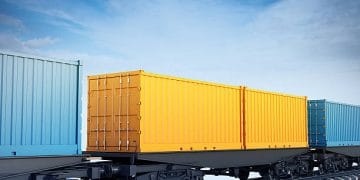by supplychainreport
The launch of new rail freight services from a major UK port marks a strategic step toward improving national logistics connectivity and supporting trade cost-efficiency. Two new intermodal rail services were recently activated to link the deep-sea port in the southeast with key inland logistics hubs in the Midlands and North of England.
This development forms part of a broader £1 billion infrastructure investment aimed at increasing capacity and enhancing port-to-inland freight movement. With rail services now connecting the port with terminals in Doncaster and the West Midlands, the UK’s freight landscape is becoming more agile, scalable, and tariff-conscious.
By expanding the rail network linking nine major inland terminals with key seaports, stakeholders in the logistics sector are advancing efforts to streamline cross-border trade and reduce dependence on road transport. This shift is expected to reduce fuel surcharges, lower carbon-related tariffs, and improve overall supply chain predictability.
Industry leaders have emphasized the long-term value of rail freight in lowering emissions, relieving highway congestion, and accelerating cargo flows—all of which contribute to reducing the tariff-related burden on international shipments. Continued investments in electrification, rail capacity, and intermodal terminals are seen as critical to strengthening the UK’s trade competitiveness, particularly as global customs and tariff structures increasingly favor greener, more efficient transport solutions.
#SCRUpdates #BreakingNews #SupplyChainReport #RailFreight #TradeConnectivity #TariffEfficiency

















